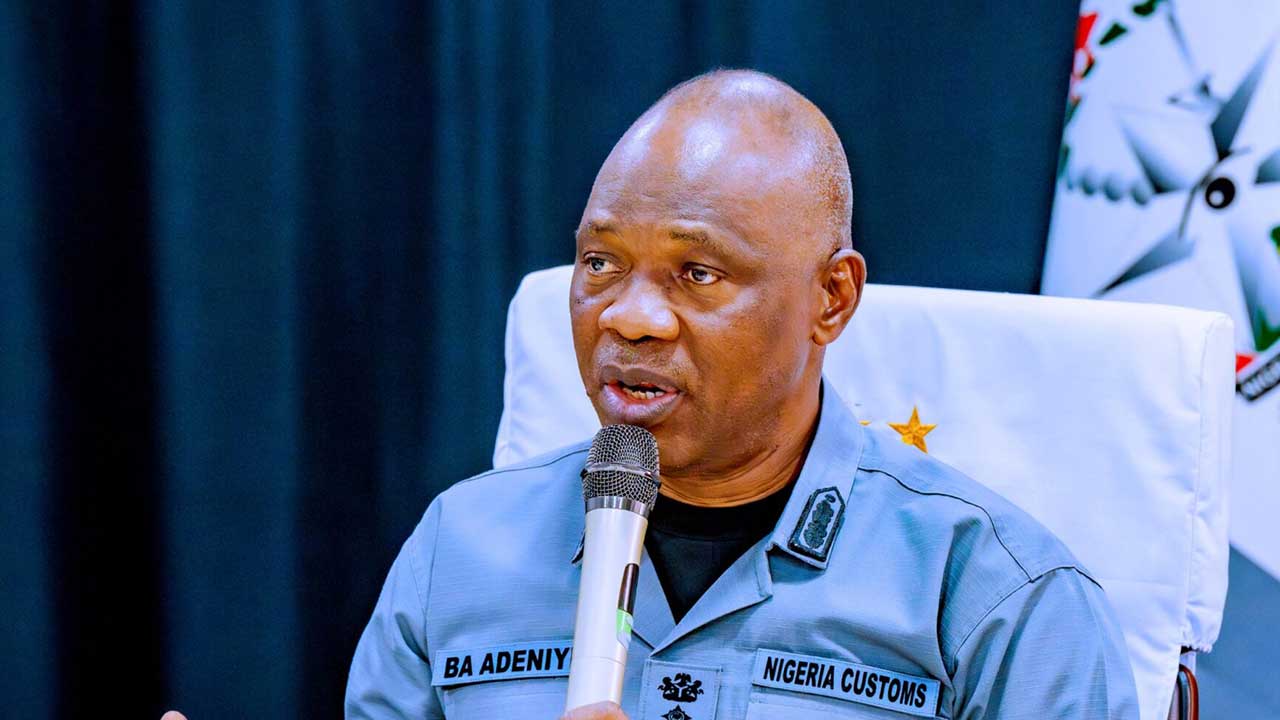Nigeria’s business community and consumers are reacting to the recent suspension of the four percent Free-on-Board (FOB) charge on imported goods—a move that signals a significant policy pause by the Nigeria Customs Service (NCS) as it works with the Federal Ministry of Finance to seek alternative funding methods for essential operations.
Background: Why the FOB Charge Was Introduced
The FOB charge, calculated at a minimum of four percent of the value of imported goods, was established as part of the Nigeria Customs Service Act, 2023. According to officials, it was meant to strengthen the Service’s funding base—aligning with global “best practice” and the provisions set out by the National Assembly. Section 18(1)(a) of the Act clearly mandates this percentage as a statutory funding mechanism for NCS activities, underscoring its legal foundation.
However, the introduction of the charge raised concerns across the business sector. Small-to-medium scale importers, major trading associations, and freight forwarders quickly criticized the policy, warning that it would sharply increase the cost of clearing goods, potentially harming trade volumes in Nigeria’s already challenged ports.
Understanding the Policy Suspension
On receiving extensive feedback, the Ministry of Finance instructed the Customs to suspend the levy. Dr. Abdullahi Maiwada, the NCS National Public Relations Officer, explained that the Service moved swiftly to comply with this directive, temporarily halting collections and launching consultations with the Finance Ministry on alternative funding options.
“While the charge itself was not an arbitrary decision, its impact on importers and the wider economy necessitated a review. The suspension demonstrates our commitment to constructive stakeholder engagement,” Dr. Maiwada stated in the NCS press release.
Stakeholder Reaction: Relief and Lingering Uncertainty
Traders and freight operators across Lagos, Onne, Tin Can, and other major ports indicated relief at the decision. “We were worried about profit margins evaporating, especially for SMEs,” said Ada Eze, a trader at Apapa Port. She continued, “Imports are already burdened by high exchange rates, port charges, and logistics bottlenecks. This suspension gives us some breathing space, but we need clarity on what’s next.”
Freight forwarders echoed these sentiments. “Customs revenue targets are important, but not at the expense of legitimate business,” commented Fatai Musa, a representative at the Nigerian Association of Freight Forwarders. “We urge all relevant agencies to consult broadly before re-introducing any new levy or fee.”
Inside Customs: The Official Position
Despite suspending the charge, Customs officials stressed that their actions remain anchored in the law. Comptroller General of Customs, Bashir Adeniyi, clarified, “We are operating within the framework provided by the National Assembly. Our priority is to meet statutory obligations without causing unnecessary disruptions in the trading environment.”
He reassured the public, licensed agents, and international partners that Customs services—ranging from goods clearance to trade facilitation—would continue seamlessly during the suspension period. He further emphasized NCS’s dedication to efficient operation, adherence to international standards, and its role in fostering Nigeria’s broader economic objectives.
Policy Impact: Exploring Alternatives and Next Steps
With the FOB charge on hold, the focus shifts to how Customs will maintain its funding while minimizing burden on businesses. The Service, together with the Finance Ministry, is reportedly exploring revenue alternatives that can balance government fiscal needs with the realities faced by importers and consumers.
- Adjusting rates: Reviews may consider more tiered fees or targeted levies on luxury imports, rather than blanket charges.
- Digital process improvements: Greater automation could improve revenue collection efficiency while reducing corruption and delays.
- Broader stakeholder input: Involving industry bodies in future policy formulation may yield solutions that balance government and private sector interests.
International trade experts note that, while many countries use service charges and levies to fund customs operations, sudden or poorly communicated changes can disrupt commerce and discourage investment. “Stable, transparent policy is key for business predictability,” said Owusu Mensah, a Ghana-based trade analyst. “Regional partners are watching Nigeria’s moves closely, given ECOWAS integration efforts and trade links.”
Regional and Global Implications
Nigeria remains West Africa’s largest economy and a gateway for imports throughout the region. Any shift in customs processes can create ripple effects in neighboring markets—from Benin’s and Ghana’s ports to informal cross-border traders in Niger and the wider Sahel.
According to the United Nations Conference on Trade and Development (UNCTAD), efficient customs policies are essential for Africa’s push toward the African Continental Free Trade Area (AfCFTA). Nigeria’s approach to “balancing revenue needs with competitiveness” may well influence best practices for customs reform across the region.
The Way Forward: Constructive Dialogue & Economic Growth
Customs Comptroller General Adeniyi concluded, “We are optimistic that ongoing discussions with the Ministry and all stakeholders will result in policies that serve the national interest, enhance our revenue potential, and support economic growth through efficient and fair customs administration.”
As the dust settles on the FOB charge suspension, business leaders and everyday Nigerians alike hope for policies that consider on-the-ground realities, foster growth, and promote smoother, more affordable import processes. The commitment to dialogue and effective trade policy will have broad impacts—determining whether Nigeria’s import sector can adapt to global standards without sacrificing local prosperity.
What Are Your Thoughts?
How do you think the Customs levy suspension will affect importers, traders, and everyday consumers in Nigeria and West Africa? Will this move help the economy recover, or simply delay tough decisions? Share your experience—have recent port charges influenced your business or household costs?
Have a news tip, business perspective, or policy story that needs to be told? We want to hear from you! Send your stories or tips to story@nowahalazone.com—let’s get important Nigerian and West African stories published together.
For general support, contact us at support@nowahalazone.com.
Connect with us and join the conversation:
Facebook,
X (Twitter), and
Instagram.
Your voice is important!
Thinking about selling your story? Reach out today and let’s put your experience in the spotlight.










